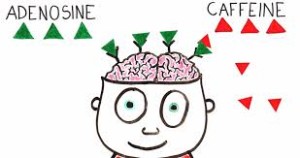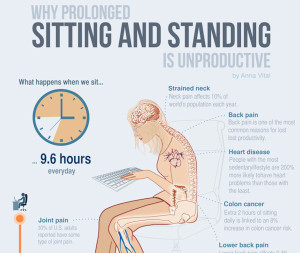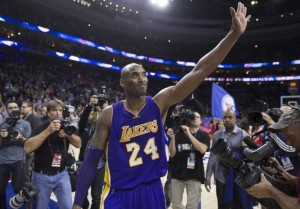In my high school, most of the girls I knew pursued tan and “sun kissed” skin. It always dumfounded me how girls were able to maintain that radiant tan during the winter. I always wondered, “Look at me, I am so pale! What are these girls doing that I do not know” Eventually through inside sources and top secret investigation, I learned that the girls I envied were actually using tanning beds. Tanning beds have always been something I avoided ever since I heard how dangerous they were from my parents. I decide to do further research. Are these tanning beds causing skin cancer?
The con – The first and only study I found was a randomized observational study, which proves it was not definitive proof, but it is good to keep note. In this study, subjects were randomly chosen from the Minnesota cancer database between the years 2004 to 2007. Then, they were given “self questionnaires and telephone interviews including information on use of indoor tanning, types of device used, initiation age, period of use, dose, duration, and indoor tanning-related burns.” (Lazovich DeAnn) In the sample size that consisted of 1167 individuals and 1101 controls, 63 percent had practiced indoor tanning while 51 percent of the control also tanned. This experiment is noteworthy, but it does not take into account other variables in which melanoma might develop. Perhaps those who were diagnosed with melanoma (skin cancer) had a heredity trait in which they immediately get cancer through the light of tanning beds. Also, we should consider the idea of reverse causality. What if the beginning stages of skin cancer forces individuals to tan more? There may be some correlation within the data from the study, but there is not enough to make the false positive conclusion that “frequent indoor tanning increased melanoma risk by 75 percent.” (Lazovich DeAnn)
What I would do: There will be no doubt that a blind randomized control trial would be best for this topic. My subjects will consist of many humans subjects, and each day, they will be exposed to a certain amount of UV light while their diet and rest is regulated. The dependent variable would be the development of melanoma while the independent will be the UV light. Though this experiment may be effective, it is not ethical by any means. I am pretty much forcing individuals to contract skin cancer, which is wrong without doubt. However, there seems to be no loophole to this. It is human skin that develops the cancer. Animal testing may not have the same effect as humans, thus, human subjects are required to have definitive results.
The start of the pros: This article made me consider the actual benefits of tanning beds, which I thought I was going insane. I had always had the notion that tanning beds were bad with vastly effects. The author pretty much talks about how tanning beds might not be associated the skin cancer at all. He lists that people tend to forget the other variables for melanoma risk, such as skin type, UV exposure, and the type of UV lamp. Another benefit in which he supports tanning beds is the fact that a moderation of Vitamin D3 (found in sunlight/tanning beds) can cause a decline of cancer risk in 16 different types of cancer. Also, more benefits of tanning beds are listed here:
- Resistance to UV rays – by moderate tanning, you can help your skin build resistance to UV rays.
- Vitamin D – Vitamin you get from tanning beds
- General mood – Tanning beds are pretty much all year accessible. Tanning is also linked to give people better moods
- Skin conditions – “It is common for dermatologists to prescribe visits to the tanning bed to those that have chronic skin conditions. A condition that is commonly treated with tanning beds is Psoriasis.” (Bitshare)
Take home message: Although there are many studies that say tanning beds are bad, there are no definitive proof that these beds cause melanoma, which is the most serious type of skin cancer. There are many confounding variables to consider, such as genetics, type of lamp, and skin type. All in all, if you do use a tanning bed, use with moderation. However, this is just based off my research and studies I found. There may be many conflicting viewpoints, so please share if you think I am right or wrong.
Works Cited
- (Mercola) http://articles.mercola.com/sites/articles/archive/2012/09/25/tanning-bed-causes-melanoma.aspx
- (Lazovich DeAnn) http://www.ncbi.nlm.nih.gov/pubmed/20507845
- http://www.ncbi.nlm.nih.gov/pmc/articles/PMC2913608/
- (Bitshare) http://bitshare.cm/post/20547945486/the-good-side-of-tanning-beds




 I cannot recall when, but ever since I was young, I was discouraged to consume coffee. Everyone told me, “Coffee will stunt your growth!” Fast forward to college, I have met people who cannot go a day without their Starbucks or Dunkin Donuts. My question is: Does coffee stunt growth? What are the pros and cons of the popular beverage? Should I cancel my Starbucks card? I decided to investigate this topic, for coffee seems to be a new addiction everyone has in the US.
I cannot recall when, but ever since I was young, I was discouraged to consume coffee. Everyone told me, “Coffee will stunt your growth!” Fast forward to college, I have met people who cannot go a day without their Starbucks or Dunkin Donuts. My question is: Does coffee stunt growth? What are the pros and cons of the popular beverage? Should I cancel my Starbucks card? I decided to investigate this topic, for coffee seems to be a new addiction everyone has in the US.




















